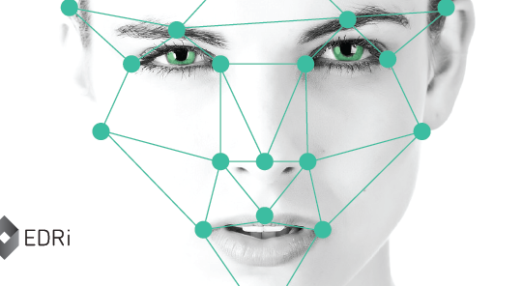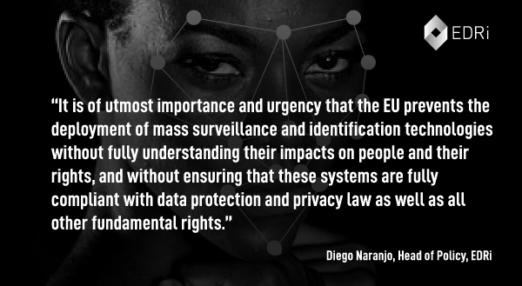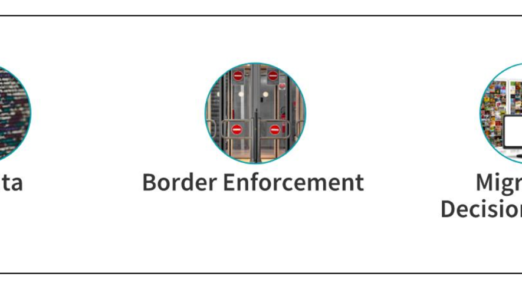AI proposals
Filter resources
-

Facial recognition: Homo Digitalis calls on Greek DPA to speak up
In the spring of 2019, the Hellenic Police signed a €4 million contract with Intracom Telecom, a global telecommunication systems and solutions vendor, for a smart policing project. Seventy five percent of the project is funded by the Internal Security Fund (ISF) 2014-2020 of the European Commission.
Read more
-

Facial Recognition & Biometric Mass Surveillance: Document Pool
Despite evidence that public facial recognition and other forms of biometric mass surveillance infringe on a wide range EU fundamental rights, European authorities and companies are deploying these systems at a rapid rate. This has happened without proper consideration for how such practices invade people's privacy on an enormous scale; amplify existing inequalities; and undermine democracy, freedom and justice.
Read more
-

Accountable Migration Tech: Transparency, governance and oversight
Migration continues to dominate headlines around the world. For example, given the currently deteriorating situation at the border between Greece and Turkey, with reports of increasingly repressive measures to turn people away, new technologies already play a part in border surveillance and decision-making at the border.
Read more
-

Security Information Service wins the Czech Big Brother Awards
The Czech Big Brother Award (BBA) 2019 winners are the Czech Security Information Service (BIS), the antivirus company Avast, and the energy company PRE. Positive prize of Edward Snowden went to the city of Prague.
Read more
-

Who should decide what we see online?
Online platforms rank and moderate content without letting us know how and why they do it. There is a pressing need for transparency of the practices and policies of these online platforms.
Read more
-

Immigration, iris-scanning and iBorderCTRL
Technologies like automated decision-making, biometrics, and unpiloted drones are increasingly controlling migration and affecting millions of people on the move. This second blog post in our series on AI and migration highlights some of these uses, to show the very real impacts on people’s lives, exacerbated by a lack of meaningful governance and oversight mechanisms […]
Read more
-

Can we rely on machines making decisions for us on illegal content?
While automation is necessary for handling a vast amount of content shared by users, it makes mistakes that can be far-reaching for your rights and the well-being of society. Most of us like to discuss our ideas and opinions on silly and serious issues, share happy and sad moments, and play together on the internet. […]
Read more
-

A human-centric internet for Europe
The European Union has set digital transformation as one of its key pillars for the next five years. New data-driven technologies, including Artificial Intelligence (AI), offer societal benefits – but addressing their potential risks to our democratic values, the rule of law, and fundamental rights must be a top priority. “By driving a human rights-centric […]
Read more
-

The human rights impacts of migration control technologies
This is the first blogpost of a series on our new project which brings to the forefront the lived experiences of people on the move as they are impacted by technologies of migration control. The project, led by our Mozilla Fellow Petra Molnar, highlights the need to regulate the opaque technological experimentation documented in and […]
Read more
-

Dangerous by design: A cautionary tale about facial recognition
In this fifth and final installment of EDRi's facial recognition and fundamental rights series, we consider an experience of harm caused by fundamentally violatory biometric surveillance technology.
Read more
-

Stalked by your digital doppelganger?
In this fourth installment of EDRi’s facial recognition and fundamental rights series, we explore what could happen if facial recognition collides with data-hungry business models and 24/7 surveillance.
Read more
-

2020: Important consultations for your Digital Rights!
Public consultations are an opportunity to influence future legislation at an early stage, in the European Union and beyond. They are your opportunity to help shaping a brighter future for digital rights, such as your right to a private life, data protection, or your freedom of opinion and expression.
Read more
